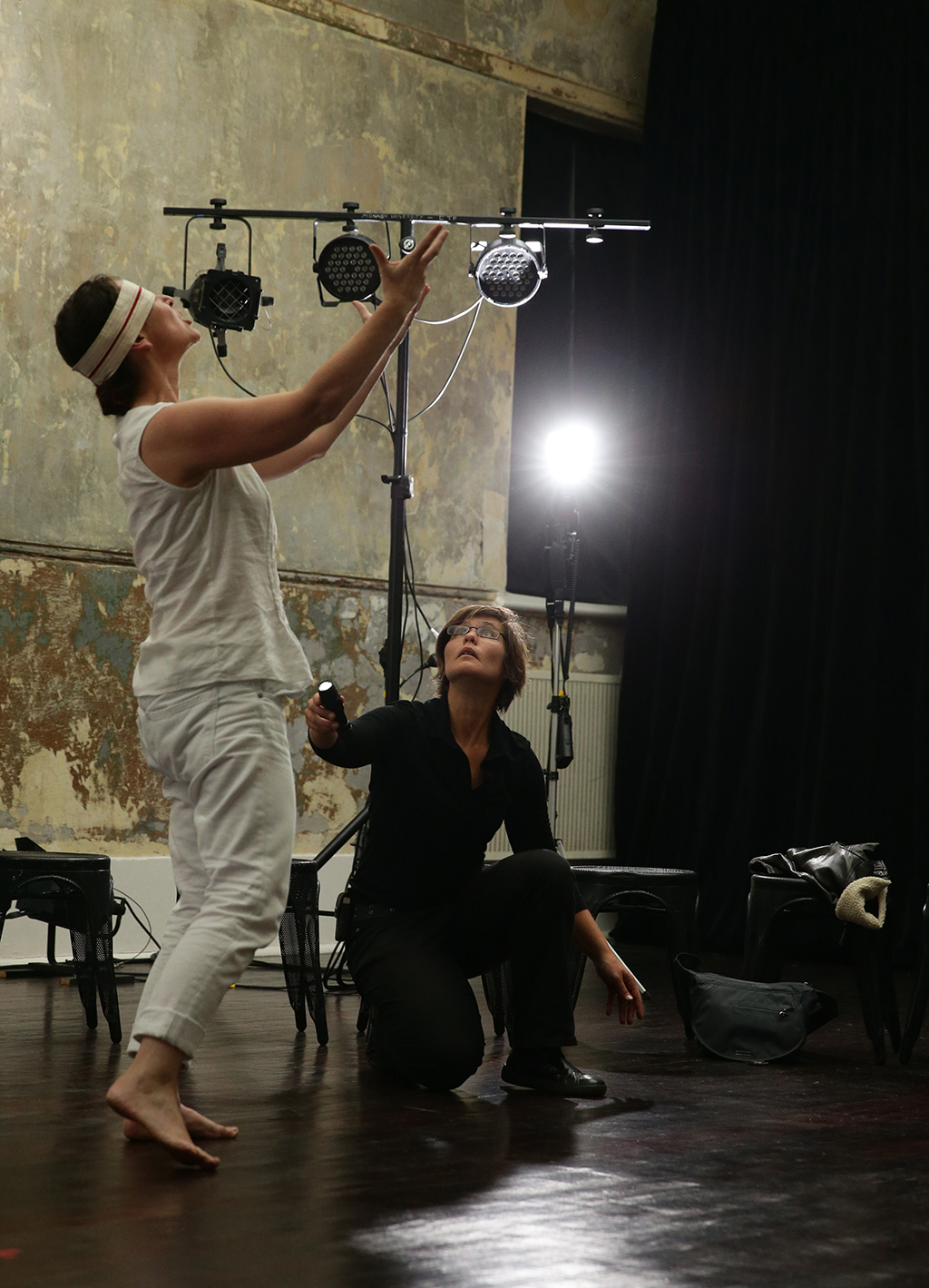To be a consciousness, or rather to be an experience, is to have an inner communication with the
world, the body, and others, to be with them rather than beside them.
Merleau-Ponty6
In this final chapter, I put forward the performance ontology of becoming that I developed in response to the question: what is the relationship between lived experience and artistic creativity? I build on the work of Grosz, in Time Travels (2005) and Becoming Undone (2011) and translate her ontologies of becoming into a more useful framework for performance practice. Using examples from my work I discuss how this ontology is enacted through my performance practice.

In Section 7.1 of this chapter, I discuss how the performance ontology of becoming, that I have developed, is a process of live knowing. Using an example from my work, I discuss live knowing as an encounter that disrupts typical systems of knowledge about mind/body, subject/object binaries and provides opportunities to experience a shift in thinking or behaviour.
In Section 7.2 of this chapter, I discuss the collaborative work I did with Vicky Kapo, an experienced choreographer and theatre maker. I describe how, working in a discovery workshop setting, we engaged in a range of experimental improvisations to practise attuning-to experience differently.
In Section 7.3 of this chapter, I describe how I applied my performance ontology of becoming in a scripted section of my performance. The particular piece, called IDEA, enacts the process of listening, attuning-to, noticing, dilating, and augmenting visceral phenomena as a way of developing creative ideas.
In Section 7.4 of this chapter, I detail how I used a Focusing session to help articulate the concept of wild life. I discuss how the processes of employing a sensory metaphor helped me to apprehend a complex human problem and experientially discover solutions and insights. I close this chapter by recognising that I have forged an experiential relationship between performance and philosophy that activates a new form of performative philosophical expression.
_________________
6 The Phenomenology of Perception, 1945/2012, p. 99
